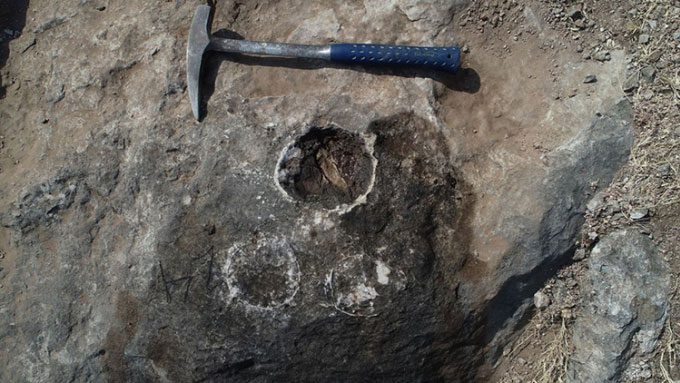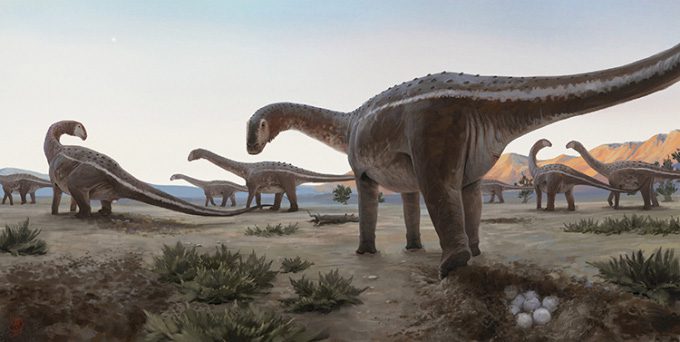The newly discovered dinosaur nesting site is one of the rarest finds in India.

One of the newly discovered dinosaur egg nests in India. (Photo: Harsha Dhiman).
A new study published in the journal Plos One on January 18 reveals that at least 92 nests containing 256 fossilized dinosaur eggs dating back approximately 66 million years have been excavated from the Lameta Formation in Dhar district, Madhya Pradesh, central India, making it one of the largest dinosaur nesting sites in the world.
The eggs, measuring between 15 and 17 cm in diameter, are believed to belong to several species of giant herbivorous dinosaurs. The number of eggs in each nest ranges from 1 to 20, with many nests found in close proximity to each other, suggesting that the parent dinosaurs did not stay to care for the eggs.
“We believe that sauropods like Titanosaurs lived in herds based on the fossilized footprints and paths. They seem to have nested together like some bird species. However, dense egg-laying is typically not a strategy associated with parental care in dinosaurs,” Dr. Susannah Maidment from the Natural History Museum (NHM) and co-author of the study said.

Simulation of a herd of Titanosaur dinosaurs nesting. (Photo: Ars Technica)
The lead author, Guntupalli Prasad, a paleontologist from the Department of Geology at the University of Delhi, further explained that the nests being close together made it challenging for the giant parent dinosaurs to move around to incubate the eggs or feed the hatchlings, as they could easily crush the eggs or step on the young.
Dr. Darla Zelenitsky, an associate professor of dinosaur paleontology at the University of Calgary in Canada, emphasized that finding such a large number of dinosaur egg nests is extremely rare, as it requires perfect preservation conditions. The nesting site in the Lameta Formation was likely buried by lava during a volcanic event known as the “Deccan Traps.”


















































